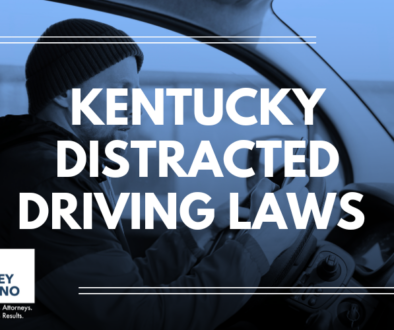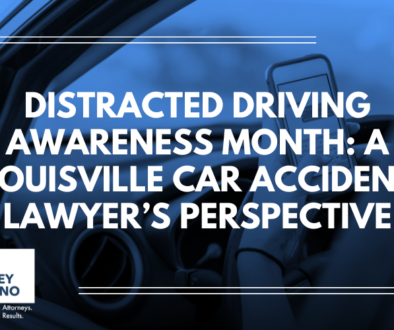Tort Actions Against Government Entities in Kentucky
Tort actions (injury claims) against government entities in Kentucky involve unique legal challenges. They involve complexities, primarily due to doctrines like sovereign immunity and specific statutory frameworks that dictate the process and limitations for such claims. Concerning tort actions against government entities in Kentucky we will better understand:
- the legal landscape
- legal framework
- procedural requirements
- immunities
- relevant case law
Legal Framework
The Kentucky Board of Claims primarily governs tort claims against government entities in Kentucky. This statutory framework provides the mechanism through which individuals can seek compensation for injuries or damages caused by the negligence or wrongful actions of state government employees or entities.
The Kentucky Board of Claims has jurisdiction over claims for personal injury, wrongful death, and property damage against the state and its agencies. The board acts under the authority of KRS Chapter 49 and KAR Title 802 to determine if a state agency was negligent, consequently causing damages, loss, or injury to a claimant. Anyone may file a claim with the Board of Claims for damages incurred. The amount a claimant is entitled to receive from any other source reduces a claim. This may include private medical or vehicle insurance (also known as offsets). The process for pursuing these claims, however, is distinct from standard tort actions against private individuals or entities.
Sovereign Immunity
Sovereign immunity is a fundamental principle that affects tort actions against government entities. It is a legal doctrine that protects the state and its subdivisions from being sued without their consent. In Kentucky, sovereign immunity has its roots in both common law and constitutional provisions.
Kentucky’s Constitution explicitly states that the state cannot be sued without its consent. However, KRS Chapter 49 serves as a limited waiver of this immunity. It allows individuals to bring certain claims against the state. This waiver is not absolute and is subject to various conditions and limitations.
Procedural Requirements
Bringing a tort action against a government entity in Kentucky involves several procedural requirements. This ensures the efficient handling of claims and that government entities have adequate notice of potential liabilities.
Notice of Claim:
Before filing a lawsuit, individuals must file a notice of claim with the Kentucky Board of Claims. This notice must include specific details about the incident. These details can include the date, time, location, and nature of the claim, as well as the damages sought. Filing the notice within one year of the incident is critical for preserving the right to pursue the claim.
Investigation and Review:
Once a notice of claim is filed, the Kentucky Board of Claims conducts an investigation to determine the validity of the claim. This process may involve gathering evidence, interviewing witnesses, and consulting with experts. The Board of Claims has the authority to settle claims or deny them based on its findings.
Hearing and Decision:
If a resolution of a claim does not occur during the investigation phase, the Kentucky Board of Claims may hold a hearing to consider the evidence and arguments of both parties. The Board of Claims then issues a decision, which can include an award of damages if the claim is found to be valid. If the Board’s decision does not satisfy the claimant, they may appeal claims under $2,500 to the full Board for review within 14 days of the date of the order. For claims $2,500 and above, the Claimant may file a request for appeal to the circuit clerk in the circuit court in the county where the incident occurred. The circuit court will send notice to the Board requesting the file.
Immunities and Exceptions
Despite the limited waiver of sovereign immunity, numerous immunities and exceptions still apply to tort actions against government entities in Kentucky. These immunities and exceptions can significantly impact the ability to recover damages.
Discretionary Function Immunity:
Government entities and employees are often immune from liability for discretionary functions, which involve policy-making and decision-making activities. This immunity recognizes that certain actions require judgment and discretion. Additionally, it recognizes that imposing liability could hinder the effective functioning of government.
Ministerial Function Immunity:
In contrast to discretionary functions, ministerial functions involve the implementation of policies and procedures without the exercise of judgment. Government employees may still be liable for negligent acts performed in a ministerial capacity.
Qualified Immunity:
This immunity protects government officials from liability for actions performed within the scope of their official duties, provided their conduct does not violate clearly established statutory or constitutional rights. Qualified immunity aims to balance the need to hold public officials accountable with the need to shield them from harassment and liability when performing their duties.
Practical Considerations for Claimants
Given the complexities of tort actions against government entities in Kentucky, individuals seeking to file such claims must navigate several practical considerations.
Timely Filing:
Filing a notice of claim within the one-year deadline is critical. Failure to meet this deadline can result in the forfeiture of the right to pursue a claim. Talk to one of our knowledgeable personal injury lawyers immediately to avoid any issues with the timely filing of personal injury claims.
Legal Representation:
Engaging an experienced personal injury attorney in handling claims against government entities is crucial. The procedural requirements and legal doctrines involved in these cases can be intricate, and skilled legal counsel can significantly enhance the likelihood of a successful outcome.
Evidence and Documentation:
Thorough documentation and evidence are essential for substantiating a claim. Claimants should gather all relevant information, including medical records, incident reports, witness statements, and any other evidence that supports their case. A top Kentucky personal injury lawyer will efficiently gather and organize your evidence to put forth your strongest case.
Understanding Immunities:
Claimants must be aware of the various immunities and exceptions that may apply to their case. Understanding the distinction between discretionary and ministerial functions, as well as the scope of qualified immunity, is vital for assessing the viability of a claim. Our experienced Louisville, KY, personal injury lawyers have handled these cases and can discuss the viability of your personal injury claims.
Help Navigating Tort Actions
Tort actions against government entities in Kentucky involve a unique set of legal challenges and complexities. The principles of sovereign immunity and the statutory framework of the Kentucky Board of Claims dictate the process and limitations for such personal injury claims. While Kentucky law provides mechanisms for holding government entities accountable for negligence and wrongful actions, numerous immunities and procedural requirements can impact the ability to recover damages.
Understanding the legal landscape, engaging experienced personal injury lawyers, and meticulously adhering to procedural requirements are essential for claimants seeking to pursue tort actions against government entities in Kentucky. By navigating these complexities effectively, individuals can seek the compensation they deserve while holding government entities accountable for their wrongful actions.
At Stein Whatley Astorino, PLLC, our team of experienced personal injury lawyers is here to assist you if you have questions about how state agencies might impact your personal injury claim.
If you have a personal injury or are a family member of someone wrongfully killed by the reckless or negligent actions of a Kentucky government agency, call us today to discuss your options. We will fight to defend your legal rights so that you get the full and fair settlement you deserve. Call 502.553.4750 for a free initial consultation.




